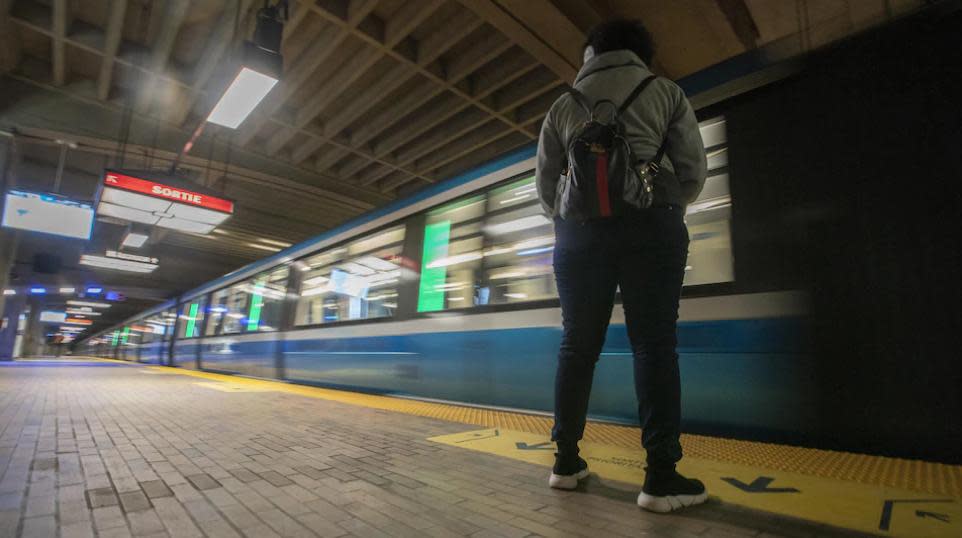Pilot project uses AI to prevent suicide in Montreal Metro

The Société de transport de Montréal (STM) and researchers from the Center for Suicide Intervention (CRISE) are developing an artificial intelligence system as part of the public transit authority's suicide prevention strategy.
The pilot project scans closed circuit television, or CCTV, footage in the city's Metro stations to detect warning signs that a person may be in distress.
"We've analyzed the videos of all the people who attempted suicide [in the Metro] with the goal of trying to see if there are some indications that someone might be in distress," Brian Mishara, CRISE director and co-investigator of the STM AI project, told Daybreak Montreal host Sean Henry.
"We've got some indicators, but obviously a human cannot watch hundreds of screens all day long to try to identify those behaviors," said Mishara, who is also a professor of psychology at the Université du Québec à Montréal (UQAM).
Once those indicators are recognized by the AI system, measures can immediately be taken to try and save the person from hurting themself, he says, adding that the system does not use facial recognition software.
In a statement, the STM told CBC that the system could warn the control room in real time, possibly the metro operators directly, allowing the trains to brake in advance and special constables to be deployed to the scene.
"Someone could be sent to the station to go up to the person and say, are you OK? Do you need some help?" Mishara said.
At the moment, Mishara says that the AI can correctly recognize one out of four people who will attempt suicide.
Adding barriers to prevent people from jumping off the platform is another idea, but it's an expensive solution, he says, especially as the STM seeks to cut costs to balance out its budget shortfall.
The STM described the AI pilot project to CBC as "promising" and said it hopes to implement the system in two years.
It also says that the goal to implement platform screen doors has been reinstated as part of its 2023-2033 plan with $5 million earmarked for studying the project.
If you or someone you know is struggling, here's where to get help:

